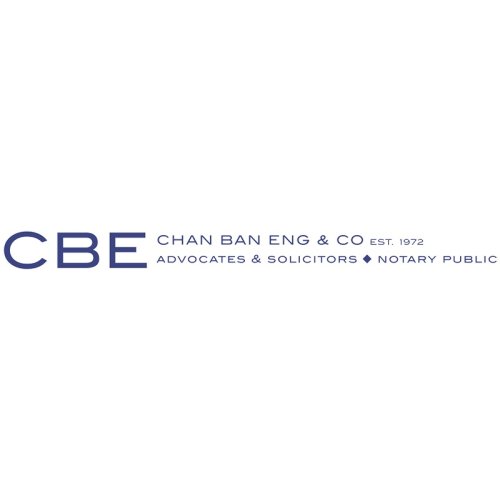Best Asylum Lawyers in Malaysia
Share your needs with us, get contacted by law firms.
Free. Takes 2 min.
Or refine your search by selecting a city:
List of the best lawyers in Malaysia
About Asylum Law in Malaysia
Asylum law in Malaysia is complex and often challenging to navigate due to Malaysia not being a signatory to the 1951 Refugee Convention or the 1967 Protocol. Consequently, there is no formal legal framework for asylum seekers and refugees under Malaysian law. Individuals seeking asylum are often categorized as undocumented migrants and may face legal challenges. The recognition and support for these individuals are largely driven by the United Nations High Commissioner for Refugees (UNHCR) in collaboration with local non-governmental organizations (NGOs).
Why You May Need a Lawyer
Given the absence of a formal asylum framework, legal assistance can be crucial in several situations:
- Detention: Asylum seekers may be detained as illegal immigrants, necessitating legal intervention for representation and negotiation.
- Documentation: Navigating the complex process of obtaining and renewing UNHCR documentation can require legal guidance.
- Employment and Rights: Legal advice is needed to understand and address work rights and protection from exploitation.
- Appeals and Advocacy: Lawyers can advocate and present cases to relevant authorities for humanitarian consideration.
Local Laws Overview
In Malaysia, the primary laws affecting asylum seekers are related to immigration. These include the Immigration Act 1959/63, which prohibits unauthorized entry and prescribes penalties for illegal stay. The lack of specific asylum laws means that asylum seekers often fall under the category of illegal immigrants, making them vulnerable to detention and deportation. However, the UNHCR plays a vital role in registering refugees, which provides some level of protection against arrest and deportation.
Frequently Asked Questions
1. Can asylum seekers work legally in Malaysia?
No, asylum seekers and refugees do not have the legal right to work in Malaysia, and doing so may result in arrest and penalties.
2. What protection does a UNHCR card provide?
A UNHCR card is not officially recognized under Malaysian law but generally offers some protection against arrest and provides access to certain healthcare and education services.
3. How does one apply for asylum in Malaysia?
Asylum seekers should register with the UNHCR, which conducts interviews and determines refugee status according to their criteria.
4. What happens if an asylum seeker is detained?
They may face deportation, but legal aid and intervention from the UNHCR or NGOs can assist in releasing them, often through bail or other arrangements.
5. Are there any local NGOs that assist asylum seekers?
Yes, several NGOs such as Tenaganita, SUARAM, and the Malaysian Bar Council provide various forms of assistance to asylum seekers and refugees.
6. Can children of asylum seekers attend school?
While not legally entitled to public education, certain NGOs and community-based initiatives offer educational programs for refugee children.
7. What is the role of the Malaysian government concerning asylum seekers?
The government's stance is primarily focused on controlling illegal immigration rather than providing asylum, leaving much of the responsibility for refugee support to the UNHCR and NGOs.
8. How long does the UNHCR process take?
The process can be lengthy, often taking several months to years due to high case loads.
9. Are asylum seekers entitled to healthcare?
Asylum seekers are not entitled to public healthcare but can access services through community clinics and programs run by NGOs, sometimes at subsidized costs.
10. Can asylum seekers be deported?
Without refugee status, they can be subjected to deportation proceedings, but legal aid and UNHCR intervention can sometimes prevent or delay this outcome.
Additional Resources
Individuals seeking more information and assistance can reach out to the following organizations:
- UNHCR Malaysia: Responsible for refugee registration and protection services.
- Tenaganita: Provides support services and advocacy for migrant workers and refugees.
- SUARAM: Offers legal aid and human rights advocacy.
- The Malaysian Bar Council: Provides pro bono legal services for refugees and asylum seekers.
Next Steps
If you are an asylum seeker in need of legal assistance, consider taking the following actions:
- Contact UNHCR Malaysia to register and seek guidance on refugee status determination (RSD) procedures.
- Reach out to local NGOs for support services, including legal aid, healthcare, and basic needs.
- If detained, seek legal representation immediately, or ask NGO contacts to facilitate this.
- Stay informed about your rights and any policy updates by connecting with community organizations and legal professionals experienced in migration laws.
Lawzana helps you find the best lawyers and law firms in Malaysia through a curated and pre-screened list of qualified legal professionals. Our platform offers rankings and detailed profiles of attorneys and law firms, allowing you to compare based on practice areas, including Asylum, experience, and client feedback.
Each profile includes a description of the firm's areas of practice, client reviews, team members and partners, year of establishment, spoken languages, office locations, contact information, social media presence, and any published articles or resources. Most firms on our platform speak English and are experienced in both local and international legal matters.
Get a quote from top-rated law firms in Malaysia — quickly, securely, and without unnecessary hassle.
Disclaimer:
The information provided on this page is for general informational purposes only and does not constitute legal advice. While we strive to ensure the accuracy and relevance of the content, legal information may change over time, and interpretations of the law can vary. You should always consult with a qualified legal professional for advice specific to your situation.
We disclaim all liability for actions taken or not taken based on the content of this page. If you believe any information is incorrect or outdated, please contact us, and we will review and update it where appropriate.
Browse asylum law firms by city in Malaysia
Refine your search by selecting a city.

















